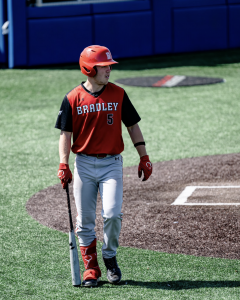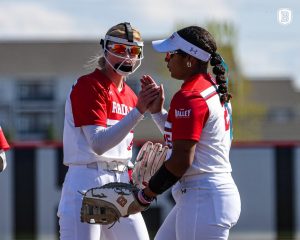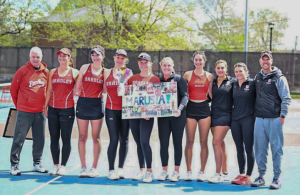On Aug. 26, the Milwaukee Bucks made waves in the sports world when players went on strike prior to the fifth game of their playoff series against the Orlando Magic. The move put the NBA playoffs (and eventually other sports) on pause, successfully directing attention to the Kenosha Police shooting of Jacob Blake, a 29-year-old Black man.
Following intense meetings between players and widespread speculation that the season would be canceled, the players returned to the hardwood the following Saturday, Aug. 29.
Make no mistake about it, the NBA players picked up a collective victory last week – one that far outweighs any that will be won on the court in the league’s Orlando bubble.
The strike was first successful in directing the focus toward the Black Lives Matter movement and away from basketball. The difference was palpable on social media, sports television and radio.
However, the players took it a step further, which is what really makes the stoppage a success.
The players used their leverage to secure commitments from the Association including, but not limited to, a social justice coalition and the conversions of home arenas into polling places on Election Day.
This protest from NBA and WNBA players feels different because it is.
This is not to say that kneeling and other forms of protest have been ineffective, as they have been successful in maintaining a focus on social change. However, those forms of protest have started to become white noise.
Television networks show players kneeling much less than they had originally and fans watching at home have grown accustomed to seeing “Black Lives Matter” on the floor. It is no longer as much of a nuance as it once was – we’ve gotten used to it and settled back into the normalcy of watching basketball.
A good protest makes people uncomfortable. Watching sports is a comfort for many fans. Take that comfort zone away, and they might be more motivated to support the movement.
The Bucks and the rest of the league’s strike made many uncomfortable, but it likely made things agonizing for one particular group: the owners and their pocketbooks.
The phrase “money talks” so often holds true, especially in sports. But in this case, the money listened.
A canceled season would’ve been a tough pill to swallow for owners, who have already seen a dramatic hit to the bottom line due to the elimination of gate revenue. If the players went on strike for the remainder of the playoffs, the owners would also miss out on their share of the millions of dollars that come with TV and advertising contracts in postseason play.
As a result, team owners supported their players with little hesitation.
The enormity of owners’ backing the players can’t be understated. Those who own sports franchises are among some of the wealthiest people in America. As a result, they have the ability to facilitate change monetarily, whether that be at the local level or in Washington D.C.
And speaking of Washington, many card-carrying members of the “Shut up and dribble” crowd in the nation’s capital were thrown into a tizzy.
Most notably, Jared Kushner, President Trump’s son-in-law and advisor, said he desired to reach out to superstar LeBron James, and criticized players for “taking the night off work” rather than taking concrete steps toward change.
Ironically enough, James has been at the forefront of change by founding the “I Promise” school in his hometown of Akron and by creating a number of voting initiatives.
For many sports fans, it is easy to make the argument that players like LeBron should keep politics and social issues out, reasoning that sports are an escape from real-world problems.
However, it is highly unreasonable to expect athletes to stay out of the fight for social justice and racial equality anymore. This is especially the case in the NBA, a league where about 80 percent of players are Black, according to Sports Illustrated.
“It’s not the NBA’s job to solve the world. It’s the NBA’s job to be a part of the world,” Los Angeles Clippers head coach Doc Rivers said on Friday in a press conference.
In my eyes, that is the most important thing to remember in all this. It is easy to fall into the trap of thinking that these athletes are above-human while watching them do their jobs, but it is so imperative not to.
Professional athletes have emotions just like you and me. They have every right to comment on racial injustice and politics as you and me. So many of them are in pain seeing Black men and women die or be injured unjustly at the hands of law enforcement.
Some NBA players have been affected themselves, including the Bucks’ Sterling Brown, who was tased and arrested by Milwaukee Police after double parking his car in a Walgreens parking lot in 2019.
I am white. I am privileged because I don’t know what it is like to feel that frustration or feel that fear.
But I can sympathize with it. I’m not sure how any fan can watch an interview like Jamal Murray’s on Sunday and not sympathize with the pain and emotional fatigue he was clearly feeling.
Off the court, basketball players are just as much a part of this flawed world as we are. While we may not all agree on everything in the political realm, it’s important to feel empathy toward each other while we work toward a country that is equal for all.
I congratulate the NBA and its players for being a part of that work, and for having three of the most successful “days off” in sports history.








